Time loss in Giro d'Italia opener not concerning for Cannondale-Garmin
"Time gaps will be measured with a calendar" by the end, says Wegelius
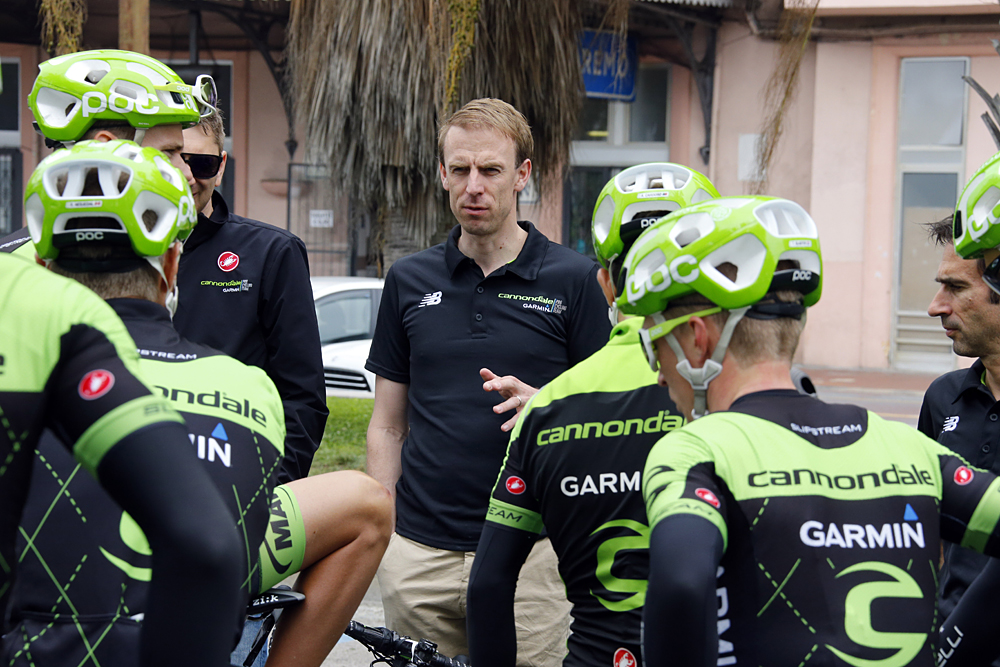
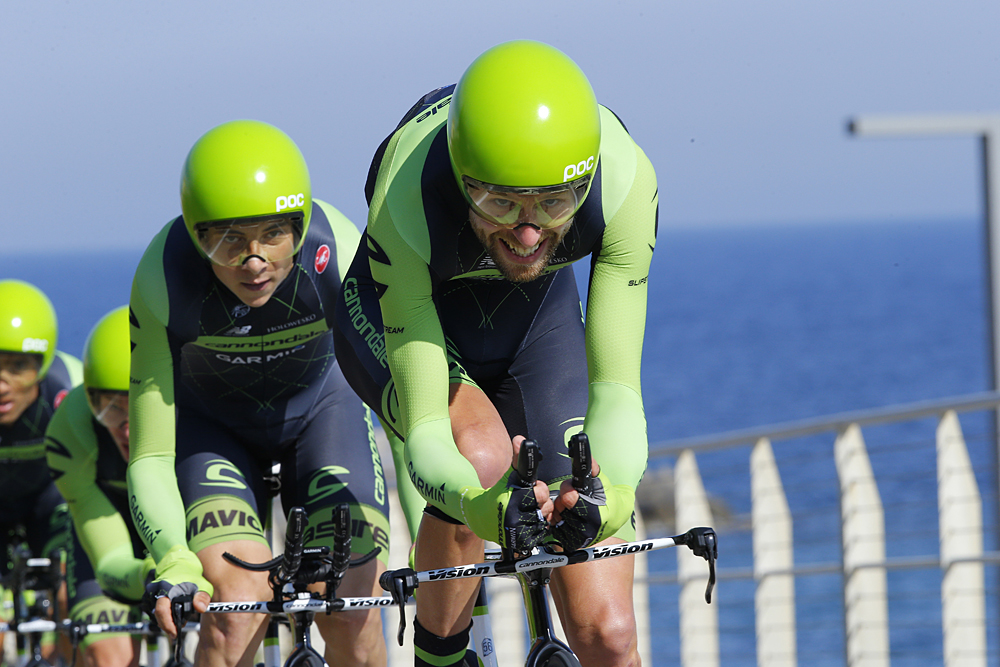
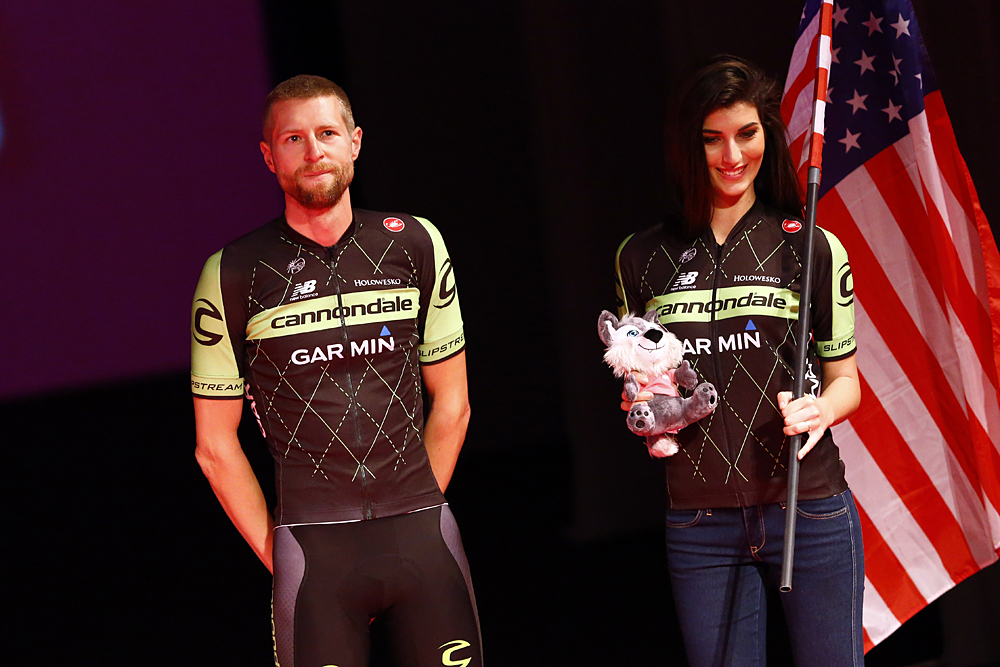
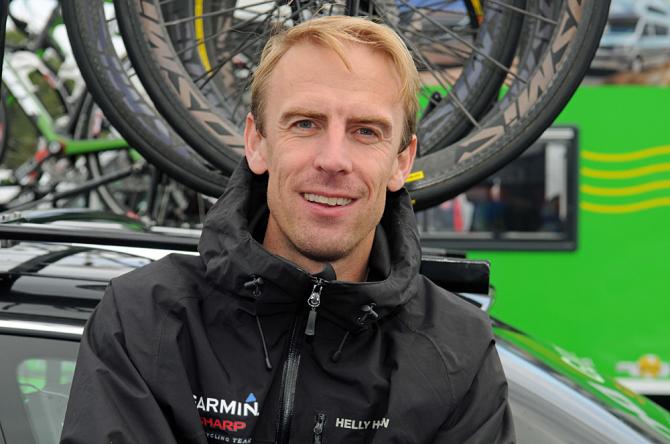
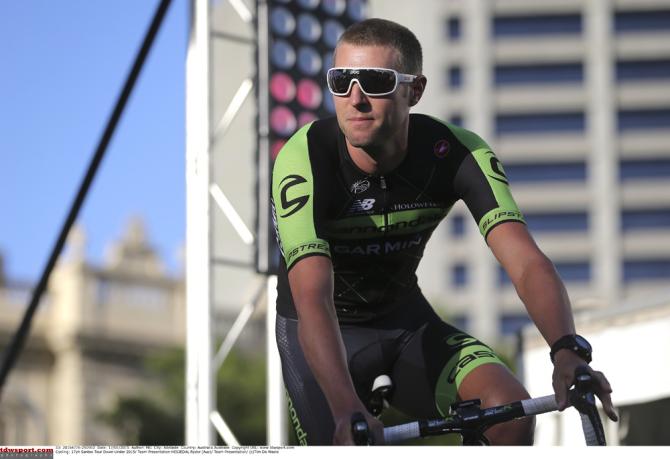
Cannondale-Garmin's Ryder Hesjedal suffered the loss of nearly a minute to his general classification rivals in the Giro d'Italia's opening team time trial, exposing the team to scrutiny in the media buzz of the race's opening week. But team director Charly Wegelius does not think the long-term the consequences will be very important.
"It was much of a muchness, to be honest," Wegelius told Cyclingnews at the start of stage two. "Orica were where they were, but if you look at the first six teams they were on a really high level, but behind that there was a pretty big gap and the rest of us were really quite close."
"Overall in the race, going forwards ... it'll be a distant memory."
History is at least partly on Wegelius' side. For example in the 2011 Vuelta a España, Team Sky crashed seriously in the opening team time trial and the team finished second last, just ahead of Geox. But in the end of the day, Geox's Juan Jose Cobo won the Vuelta, whilst Sky's Chris Froome and Bradley Wiggins finished second and third on the final podium in Madrid.
As Wegelius points out, it was important that Cannondale-Garmin's opening team time trial came off without any crashes. "They stayed safe and that’s already a huge bonus."
Rewind twelve months and it was a very different story, as Garmin's dramatic and memorable Giro d'Italia TTT crash in Belfast saw Dan Martin and Koldo Fernandez abandon - and left Ryder Hesjedal on the back foot for a GC bid. In 2013 and 2012 Garmin had mass crashes in the Vuelta's opening team time trials in Galicia and Pamplona, although the 2013 Tour de France team time trial was without incident.
If Cannondale-Garmin's riders were still spooked by last year's Giro d'Italia, they got the monkey off their back in the 2014 Vuelta a España last September. Although Garmin-Sharp finished 18th - 41 seconds down on winners Movistar - they finished the stage crash free.
Get The Leadout Newsletter
The latest race content, interviews, features, reviews and expert buying guides, direct to your inbox!
Team director Bingen Fernandez told Cyclingnews that the team had erred on the side of caution last September, which, given there were 17 roundabouts in 12.6 kilometres of greasy urban roads on the Spanish course, was probably no bad thing. Nine months later, Wegelius says that although the 2014 Giro crashes are still vivid in his memory, he believes the team has moved on from the Belfast nightmare.
"We haven't given it a great deal of attention and we've focused on doing what we need to do rather than thinking about the past. But I won't lie to you, when I'm in the team car I quietly think about it at times."
Other top-ranked teams said a fast start was vital to their success on Saturday, and Wegelius admitted, "they could have started quicker. After about 10 kilometres they lost a little bit of momentum, a little bit of shape, and that could have been better. But otherwise, technically, they executed the plan quite well."
53 seconds was a bit more than they expected to lose, however. "[It was] 10 seconds, maybe 15 seconds more than would have been ideal. I think if you look at the composition of our team and the average weight of the riders, I don't think you can complain about that at all. I'm not concerned. They're going to be measuring the time gaps with a calendar by the end of the race."
"There is a great deal of discussion also because it's the first stage of the Giro. Let's say you brought a team to do well on a flat 17.7 kilometre course on a bike path, then I can see that same team having some problems on the other parts of the race. This is one of the obstacles, but there are a lot of other obstacles."
Looking further ahead, Wegelius argues that Italian geography makes for a very different race than the Tour de France. "In France you've ten days of flat then you've got the Pyrenees and the Alps, but here you've got a lot of in between stuff, which makes it a big obstacle for those who want to control the race. Sprinters make it [to the finish], sprinters don't make it. Our opportunities could be in those medium-difficulty stages, which are a lot harder than in France."
Given Cannondale-Garmin's dearth of victories so far this season - just a stage in the Criterium International and the overall of Circuite de la Sarthe - questions about whether the team is beginning to feel under pressure are almost inevitable. "Riders put pressure on themselves first and foremost because they want to do well. That goes without saying," Wegelius said.
"If you look at how the races have gone, unfortunately when something goes a little bit wrong with one of our leaders, then we're in the spotlight. It doesn't take much for things to go less than ideally, but unfortunately as the years go by the conclusions get drawn earlier and earlier."
Alasdair Fotheringham has been reporting on cycling since 1991. He has covered every Tour de France since 1992 bar one, as well as numerous other bike races of all shapes and sizes, ranging from the Olympic Games in 2008 to the now sadly defunct Subida a Urkiola hill climb in Spain. As well as working for Cyclingnews, he has also written for The Independent, The Guardian, ProCycling, The Express and Reuters.
